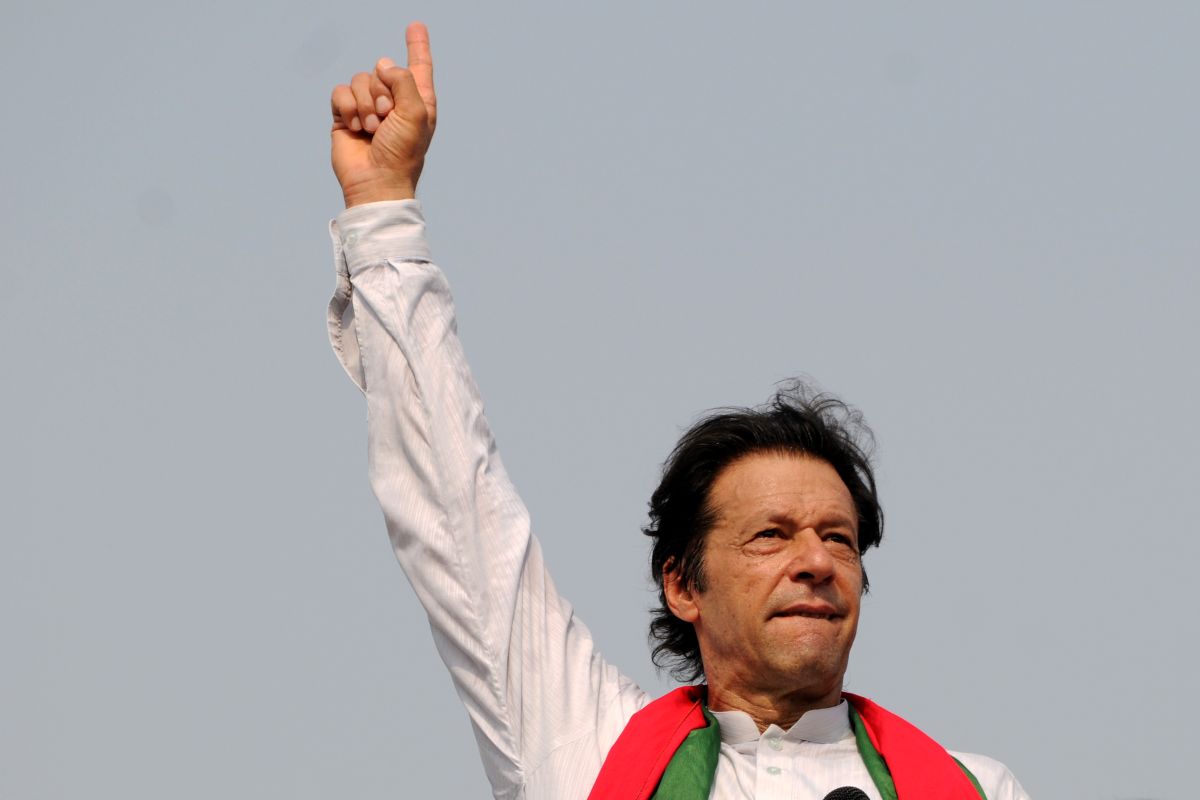SC seeks number of FIRs registered in instant triple talaq cases
Triple talaq ceased to exist on August 22, 2017, when the Supreme Court declared it void.
In fact it is likely that not only will disappearances in Baluchistan, Sindh and KPK not take place without any restraint, the court might decide to review all past cases about which the ISI had been dragging its feet.

Pakistan Prime Minister Imran Khan (Photo: IANS)
The eleventh hour judgment permitting six month extension to General Qamar Javed Bajwa who had earlier been given a three-year extension by Prime Minister Imran Khan, the Supreme Court bench comprising Chief Justice Asif Saeed Khosa, Justice Mazhar Alam Khan Miankhel and Justice Syed Maansoor Ali Shah, has set a precedent that could reset the relations between the judiciary, the government and the Army in Pakistan. During the time the Court considered the merits of the extension and the manner in which it was given the country held its breath wondering what the outcome would be. As opposed to earlier cases before the judiciary this time round the country was left in no doubt that what the Court decided would have to be accepted by the prime minister and the outgoing chief who had desired to stay on. The media that had been restrained on account of the curbs on it had a field day voicing its views without let or hindrance.
The technical and constitutional flaws in the manner the extension was given have been extensively covered in the press and comments by experts as well as non-experts who also felt emboldened to say what they felt. For the days the judgment was being reviewed the press enjoyed rare freedom that it had been deprived of or a long time. With only slight hyperbole it can be opined that the judgment has let the genie out of the bottle. There is no going back to status quo ante. What then are the main implications for the future of Pakistan with regard to future extensions for army chiefs that had almost become de rigeur for two decades?
Advertisement
Briefly, by present reckoning these are:
Advertisement
The press having experienced unrestrained freedom for a few days might not accept being muzzled that easily or that drastically. Even the notorious ISI (inter Services Intelligence)that was often accused of making troublesome reporters disappear will now have second thoughts about doing so, mindful that neither army chiefs nor the government of the day would be able to afford it protection were the courts to take suo motu note of these disappearances.
In fact it is likely that not only will disappearances in Baluchistan, Sindh and KPK not take place without any restraint, the court might decide to review all past cases about which the ISI had been dragging its feet. The same applies to Rangers and other uniformed entities that had been party to these crimes in the past.
It is early days for the implications of the judgment to be analysed in detail by all concerned; it is reasonable to assume that as the days go by the courts without seeming to push too hard will hold the government accountable for decisions that do not conform to the law of the land or appear too arbitrary as has often been the case in the past. The most radical of the Pakistan tanzeems too might begin to feel the heat. By the same token their deployment by the army on the borders for acts of terrorism might come under scrutiny, if not immediately gradually into the future. The judiciary would be far more interested – as would judiciaries in other parts of the subcontinent – that peace prevail in the region than has been the wont of the governments so far.
Last but not least several countries that have interest in this part of the world will take note of the judgment. Without going into details in this short article suffice to say that Afghanistan, USA and China will certainly examine its effect. In the case of China several cases could be taken up regarding CPEC (China-Pakistan Economic Corridor) on account of aggrieved provinces and the lack of transparency. What about the US and its relations with Pakistan and India on account of the conflicting interests of these countries in Afghanistan?
(The writer is a retired Major-General of the Indian Army and an analyst of international affairs.)
Advertisement